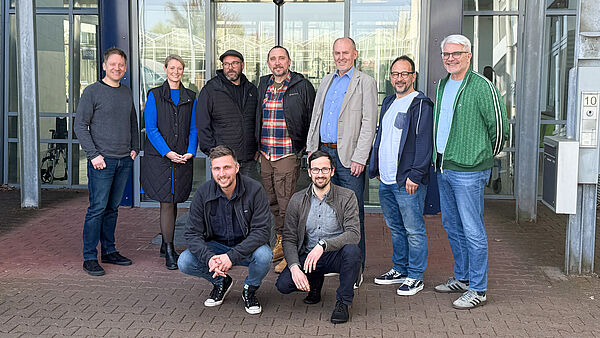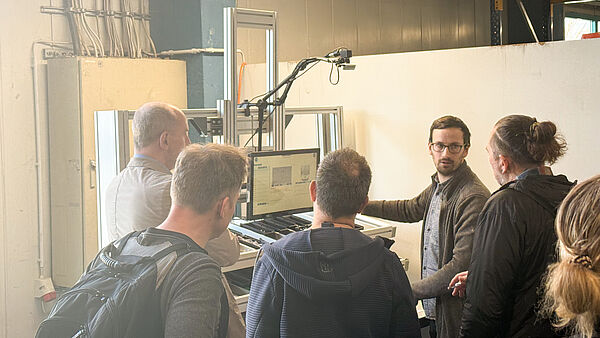How can digital assistance systems be designed so that they really support people with disabilities in their day-to-day work? This was the question addressed by the AMICO project partners at the second project meeting of the year in Gütersloh.
AMICO: Digital assistance for occupational participation
Together with Wertkreis Gütersloh gGmbH, Bottroper Werkstätten gGmbH and Landschaftsverband Westfalen-Lippe (LWL), the inIT Human-Technology Interaction working group headed by Prof. Dr. Dr. Dr. Carsten Röcker is developing digital assistance systems that are customisable, flexible and functional.
‘Flexibility and self-determination are key elements in the design of system components. Purely machine-based customisation meets with resistance, especially from people with cognitive or mental disabilities,’ explains Mario Heinz-Jakobs, research associate at inIT.
Second project meeting: Reflection and exchange
The second project meeting of the year took place at Wertkreis Gütersloh gGmbH. After a welcome from Managing Director Emilio Belucci, the programme began with a status update from the various areas of work at Wertkreis. This was followed by a critical reflection on the progress made so far, which provided important impetus for further project work.
‘A decisive factor for the successful and needs-based use of flexible assistance systems is internal differentiation. Only through the targeted coordination of skills, individual support needs and the requirements of the work process can these systems create added value in the long term - both in workshops and in industrial companies,’ said Michael Kahnert, Technical Director of the Bottrop workshops.
The participants went on to discuss key acceptance criteria and system requirements. A particular focus was placed on the interaction between people, technology and organisation, which was explored in greater depth using specific application examples.
Next project step: focus on interaction metrics
In the coming months, the focus will be on developing suitable interaction metrics. These should adapt flexibly to different support requirements and react dynamically to changes in the workflow.
‘The question of the extent to which these assistance systems can also be transferred to other industrial contexts is particularly exciting,’ adds Jörg Rodehutskors from Innovationsmanufaktur Gütersloh.
We look forward to the next development steps and further dialogue with our project partners and all interested parties!
You can find out more about the project on the project website: https://amico-assist.de



